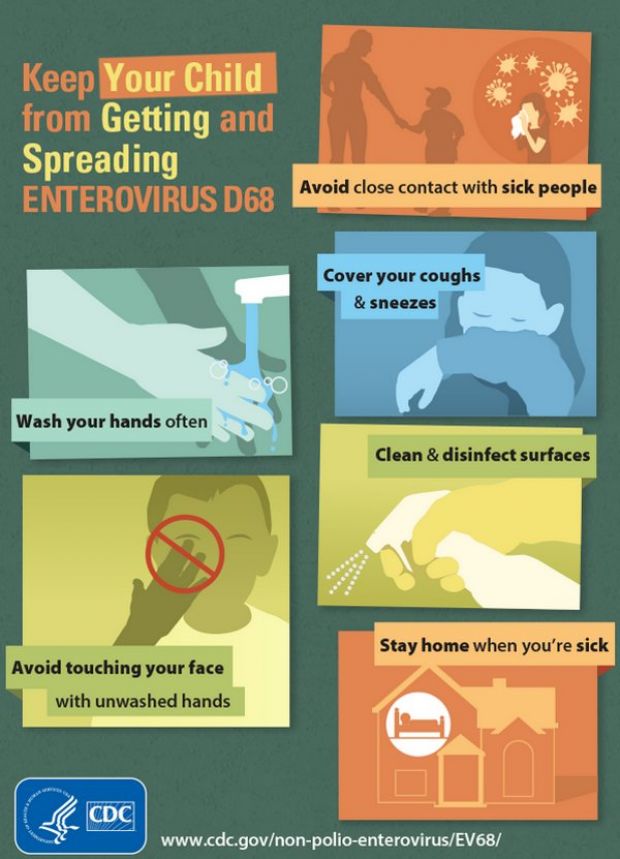Earlier this year, in mid-August, a respiratory virus known to the scientific community as EV-D68 (short for Enterovirus D68) made a comeback in the US. The virus was first documented in this country in 1962, and has since been reported on very few occasions.
Media reports say that cases of people infected with EV-D68 have until now been announced in as many as 21 states. Thus, it appears that, after first sickening people in the Midwest, the respiratory virus moved on to infect folks in the Northeast.
The latest cases were reported in Connecticut and New York just days ago. It is believed that, in the weeks to come, the respiratory virus will continue to spread and infect people all across the country, New York Daily News informs.
What the CDC has to say about this outbreak
It's important to note that, until now, the country's Centers for Disease Control and Prevention has only confirmed the presence of the virus in six states. These states are as follows: Colorado, Illinois, Iowa, Kansas, Kentucky and Missouri.
Information shared with the public says that, between mid-August and September 12, a total of 97 cases of people infected with this respiratory virus were confirmed in the aforementioned states. Of the folks who required medical attention following infection, many were children suffering from asthma.
“From mid-August to September 12, 2014, a total of 97 people in six states were confirmed to have respiratory illness caused by EV-D68. A CDC laboratory confirmed these cases,” the Centers writes. “Some state laboratories may have also confirmed cases, but these are not included in our total case count,” it adds.
So, how does the Enterovirus D68 work?
Specialists with the Centers for Disease Control and Prevention explain that EV-D68 causes symptoms such as fever, sneezing, runny nose, body and muscle aches, and cough. Breathing difficulty and wheezing can also occur, especially in children who have an underlying condition such as asthma.
Investigations have shown that the virus spreads from one person to another when an individual carrying it in their body coughs, sneezes, or touches contaminated surfaces. As mentioned, children are the ones more likely to catch it. However, adults with a compromised immune system are also at risk.
What is being done to keep the virus from spreading
Unfortunately, specialists are yet to develop a vaccine against this virus. What's more, no specific treatment options are available. Thus, all doctors can do is address the symptoms that people infected with EV-D68 display. Pain and fever medication seem to help folks feel a wee better.
“There is no specific treatment for people with respiratory illness caused by EV-D68. For mild respiratory illness, you can help relieve symptoms by taking over-the-counter medications for pain and fever. Aspirin should not be given to children.”
“Some people with severe respiratory illness may need to be hospitalized. There are no antiviral medications currently available for people who become infected with EV-D68,” the Centers for Disease Control and Prevention explains.
Specialists say that, in order to keep themselves safe, people must regularly wash their hands with water and soap, and avoid getting too close to people known to be infected with EV-D68. Disinfecting surfaces on a regular basis can also help keep the virus from spreading any further.
Check out the infographic below to learn more about what you have do to keep yourself and your family safe.

 14 DAY TRIAL //
14 DAY TRIAL // 

